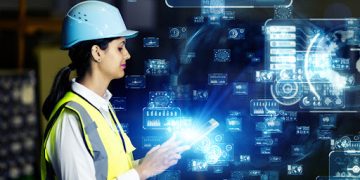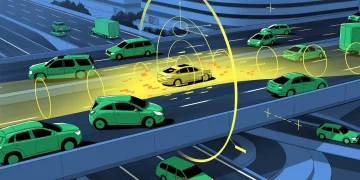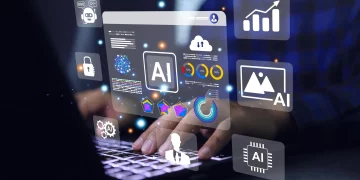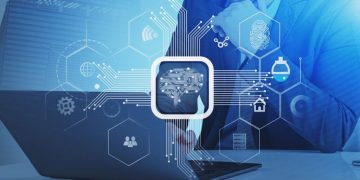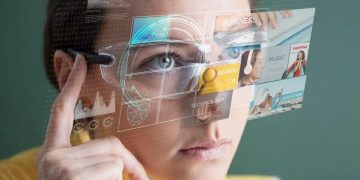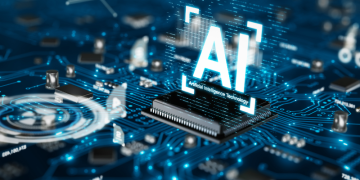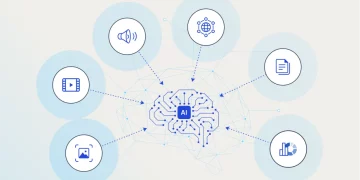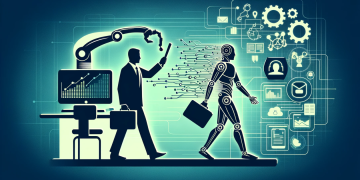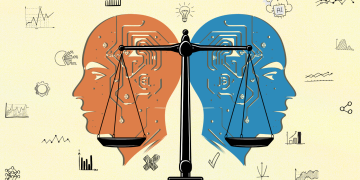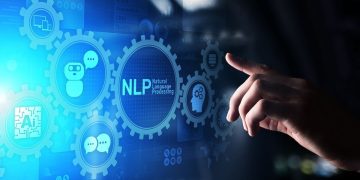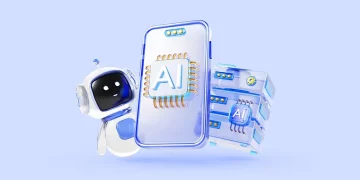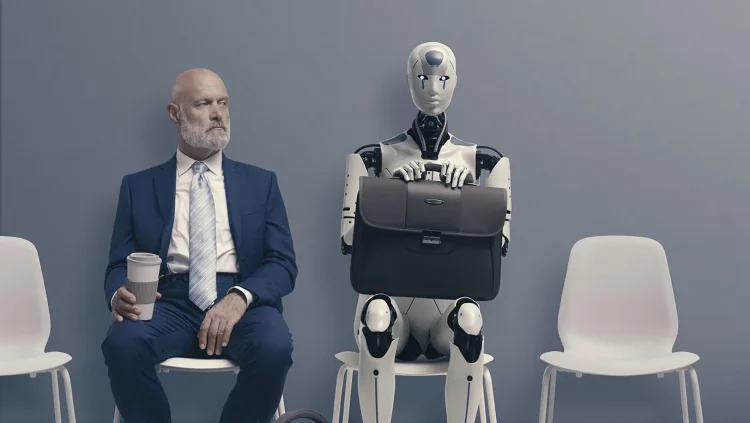Introduction
Artificial Intelligence (AI) is rapidly changing the landscape of work, affecting how businesses operate, how employees perform their tasks, and the overall structure of the job market. The rise of automation and AI-driven technologies is reshaping industries, enabling higher productivity, efficiency, and innovation. However, alongside these benefits come significant challenges, particularly in terms of job displacement and the evolving nature of employment. The widespread integration of AI across sectors raises critical questions about the future of work, the potential for large-scale job loss, and the urgent need for reskilling programs to prepare the workforce for an AI-powered economy.
In this article, we explore the socio-economic implications of AI on employment, drawing on insights from economists, labor experts, and industry leaders. We delve into the potential risks of automation on jobs, the transformation of the job market, and the role of workforce retraining programs in ensuring that workers are equipped to thrive in a rapidly evolving labor market. By addressing these key issues, we can better understand the complexities of an AI-driven economy and the steps needed to mitigate its challenges while maximizing its potential for positive change.
AI and Employment: A Dual-Edged Sword
AI’s impact on employment is often portrayed as a double-edged sword. On the one hand, automation has the potential to drive significant economic growth and create new industries, spurring the development of new job roles that didn’t exist before. On the other hand, there are real concerns that AI could displace millions of jobs, particularly those that involve repetitive or manual tasks that can be automated with relative ease.
The rapid rise of AI-driven technologies such as machine learning, robotics, and natural language processing has already transformed sectors like manufacturing, logistics, and customer service. For example, self-driving vehicles and automated warehouses are poised to replace many roles in transportation and logistics, while AI-powered chatbots and virtual assistants are changing the landscape of customer service jobs. As automation continues to advance, many low-skill, routine jobs are at risk of being replaced by machines, leaving workers in those sectors vulnerable to displacement.
However, it’s important to recognize that AI also creates new job opportunities. While automation may eliminate certain tasks, it often gives rise to new roles that require higher levels of technical expertise, creativity, and human judgment. For example, AI systems require human oversight and management, which means there is an increasing demand for data scientists, AI specialists, and cybersecurity experts. Additionally, the growing adoption of AI in healthcare, finance, education, and other industries is opening up new avenues for employment in fields like AI ethics, data analysis, and machine-human collaboration.
Despite the potential for job creation in some areas, the transition toward an AI-driven economy will likely be uneven. Workers in certain sectors, particularly those in manual labor-intensive industries, may face challenges in finding new employment opportunities without the necessary skills to adapt to the changing job market. This brings us to the pressing issue of reskilling and workforce retraining.
Automation and Job Market Transformation
The automation of tasks traditionally performed by humans is fundamentally altering the structure of the job market. One of the most significant impacts of AI is its ability to automate not only manual labor but also cognitive tasks that require decision-making and problem-solving. For example, AI algorithms are now capable of analyzing large datasets to make informed decisions in industries such as finance, healthcare, and marketing, reducing the need for human intervention in routine tasks.
As a result, jobs that were once considered secure are increasingly vulnerable to automation. In fields like accounting, administrative support, and retail, AI technologies are automating routine and repetitive tasks such as data entry, inventory management, and customer service interactions. This has led to fears that automation will cause widespread job losses and exacerbate inequality, especially for workers in low-wage or low-skill roles.
However, the transformation of the job market is not all negative. Many experts argue that AI’s impact on employment should be viewed as part of a broader trend of technological advancement that has historically led to job creation in new sectors. For instance, the advent of computers and the internet in the late 20th century disrupted traditional industries, yet it also gave rise to entirely new fields like software development, digital marketing, and e-commerce.
As AI continues to evolve, it is likely that new industries will emerge, creating demand for skilled workers in areas such as AI development, robotics, data analytics, and even roles that require human expertise in managing AI systems. Moreover, AI’s ability to handle repetitive and mundane tasks can free up human workers to focus on higher-value activities that require creativity, emotional intelligence, and strategic thinking—skills that machines are not yet able to replicate.
However, for this transformation to occur successfully, it will be crucial to ensure that workers are not left behind. This brings us to the essential role of workforce retraining programs.

The Need for Reskilling: Preparing the Workforce for an AI-Driven Economy
As automation and AI reshape the job market, workers must adapt by acquiring new skills to remain relevant in an increasingly technology-driven world. The shift towards an AI-powered economy underscores the importance of reskilling and upskilling programs to ensure that workers can transition from roles that are at risk of automation to those that require more advanced technical skills or human capabilities.
Reskilling programs can help workers develop expertise in areas such as data science, machine learning, cybersecurity, and digital marketing. These fields are expected to experience significant growth as industries adopt AI technologies, creating new job opportunities for individuals who can adapt to these changes. For instance, in the healthcare sector, AI is already being used to assist in diagnostic processes, and as AI adoption increases, the demand for healthcare professionals with expertise in managing and interpreting AI-driven tools will rise.
In addition to technical skills, workers will also need to cultivate soft skills that are difficult for machines to replicate. Creativity, emotional intelligence, adaptability, and problem-solving are all traits that will continue to be valuable in the AI-driven economy. Reskilling initiatives must therefore focus not only on technical proficiency but also on fostering these human-centric skills that machines cannot easily replace.
Governments, businesses, and educational institutions all have a role to play in supporting reskilling efforts. Public policies that promote access to education and training opportunities are critical to ensuring that displaced workers can acquire the skills needed for new roles. Additionally, businesses should invest in ongoing training for their employees, offering opportunities for professional development and career advancement as part of their corporate responsibility. Partnerships between industry and academia can also help bridge the skills gap by offering targeted training programs that align with the evolving needs of the job market.
The COVID-19 pandemic has highlighted the importance of digital literacy, as many jobs shifted to remote work and online platforms. As we move toward a more AI-integrated economy, digital skills will become even more critical, making it essential for workers to remain adaptable and continuously learn new technologies throughout their careers.
The Future of Work in an AI-Powered Economy
The future of work in an AI-powered economy will be shaped by a combination of factors, including technological advancements, workforce adaptation, and public policy. While automation may lead to job displacement in certain sectors, it is also likely to create new opportunities in emerging fields that require human expertise, collaboration, and decision-making. AI has the potential to transform industries, improve productivity, and drive economic growth, but it will be important to manage the transition in a way that benefits all workers, not just those in tech-focused roles.
The key to navigating this transition lies in proactive and comprehensive strategies for reskilling the workforce. By equipping workers with the skills and knowledge necessary to thrive in an AI-driven world, we can ensure that automation enhances human potential rather than replacing it. Moreover, a strong social safety net and support systems will be essential to help workers through this period of transformation and uncertainty.
Ultimately, AI’s impact on employment will depend on how societies and policymakers choose to approach the challenges of automation and workforce retraining. By investing in education, fostering collaboration between industry and government, and ensuring that all workers have access to the resources they need to adapt, we can build a future where AI is a force for economic empowerment and social progress.
Conclusion
The socio-economic impact of AI on employment is multifaceted, with both opportunities and challenges. While automation has the potential to displace jobs in certain sectors, it also presents the opportunity to create new industries, enhance productivity, and unlock human potential. The key to managing this transformation will be a concerted effort to reskill and upskill the workforce, preparing workers for the demands of an AI-driven economy. By embracing the potential of AI while addressing the risks of job displacement and inequality, we can shape a future of work that benefits all individuals, regardless of their industry or skill level.

